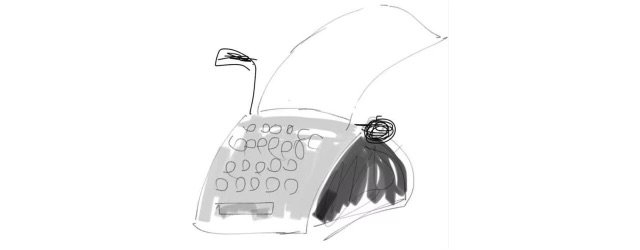Steve Bracks' eulogy for Michael Gurr
Below is the speech the former Premier of Victoria, Steve Bracks, gave at the public memorial for playwright and speechwriter Michael Gurr.
Michael died on May 2, 2017. His memorial was held on May 15 at the Malthouse Theatre.
Michael once wrote,
‘Political speechwriters dream the Gettysburg Address but wake up to the Cheltenham Chamber of Commerce.’
I suspect he was referring to state politics.
What that quote doesn’t tell you is how often Michael made those of us who had to speak to the Cheltenham Chamber of Commerce feel a little like Abraham Lincoln.
My point: politics mattered to Michael.
It mattered deeply.
It wasn’t a game.
It wasn’t beneath him.
It was worth the fight.
Politics was – and is – the stuff of life.
Yes, it’s messy.
Yes, it involves compromise.
But public life is a calling worthy of the efforts of our best and brightest – people like Michael.
That’s what Michael believed.
That’s why he dedicated his considerable talents to the collective effort for progress.
And I am here to tell you that Michael’s contribution to the fight for progress counted.
He made a difference.
I first met Michael in 1999.
I had just become Leader of the State Opposition.
Labor was – according to the experts – unelectable.
Michael didn’t agree.
Michael had volunteered his speechwriting services to my predecessor, John Brumby, in 1996.
He didn’t want anything in return for his efforts. He just wanted to get rid of Jeff Kennett.
Over the next three years, Michael was one of the true believers who – bit by bit – pulled Labor back from the abyss.
He was one of the reasons why we won in 1999.
Much has been written and said about the 1999 election.
Especially the one-word speech Michael wrote that was to be delivered if – against all the odds – we won.
That one word was ‘F.U.C.K.'
What hasn’t been widely acknowledged is how important Michael was to me at the time – not just as a speechwriter, but as a voice of reason and a friend who helped us find the words that led us to the light on the hill.
As I said, Michael made a difference.
That’s why, after we won, I asked Michael to come in from the cold – to work as my speechwriter in government.
He declined the offer.
I understood why Michael said no.
He wasn’t in politics for personal gain.
He just wanted to put his shoulder to the wheel.
He just wanted us to get to the top of that hill.
That was why – whenever the contest was fiercest – whenever the outcome was in question – I found Michael was standing beside me.
He worked for us in the 2002 election and the 2006 election:
Advising me,
Making me laugh,
Helping us find the words that led to the light on the hill.
All of which is why it’s hard to believe he’s gone.
I last saw Michael at St Vincent’s.
It was the day the Paul Keating was visiting Melbourne – and Keating had given a sparkling interview to Jon Faine on 774.
Michael and I spoke about Keating.
And we spoke about 1999.
And – at one point – Michael thanked me for letting him work on those elections.
And I had to respectfully disagree with my old friend.
He didn’t have to thank me – but I had to thank him for helping us find that light on the hill.
Thank you, Michael.
You were the light.



